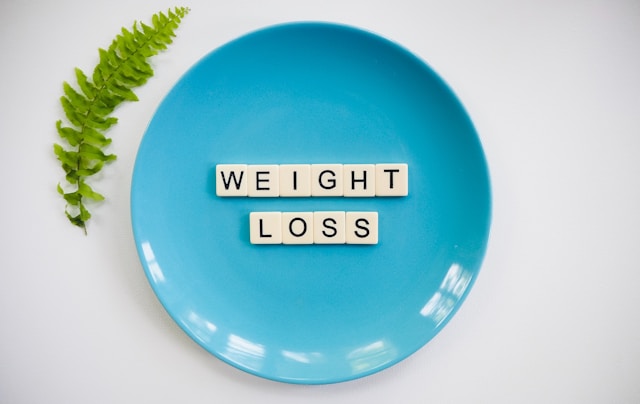7 Days Indian Diet Plan for Weight Loss
How many times have you come across the advice, “Eat the proper food for good health”? A weight loss journey can feel overwhelming. Choosing the right diet is necessary to reduce weight and maintain good health. Healthy eating has gained importance. Let us discover the effectiveness of Indian delicious meals for weight loss. This 7 days Indian diet plan offers delicious, healthy meals using everyday ingredients to help you slim down naturally.
Does The Indian Diet Promote Or Focus On Good Health?
Indian cuisine is filled with amazing flavors, spices, and herbs. However, beyond the culinary pleasure, Indian dishes offer various health advantages.
Indian cuisine is renowned for its diverse and vibrant dishes, contributing significantly to a nutritious and well-rounded diet.
With its emphasis on whole grains, lentils, vegetables, fruits, and healthy fats, such as those found in coconut and mustard oil, the Indian diet offers a wealth of nutrients essential for overall well-being.
Additionally, the incorporation of simple herbs and spices like turmeric, ginger, and garlic contributes to anti-inflammatory and digestive benefits. While Indian cuisine differs regionally, its core principles of balance contribute to overall good health.
Is a 7-Day Indian Diet Plan Suitable for Good Health?
Achieving and maintaining weight loss doesn’t require exotic ingredients. Indian cuisine acts as a catalyst in promoting good health.
The best diet plan for Indians revolves around enjoying traditionally prepared meals using locally sourced and seasonal ingredients.
With traditional ingredients, a 7-day Indian diet plan can help you lose weight and improve your overall health.
Making small and simple lifestyle changes and being mindful of your meals can greatly assist in both losing weight and maintaining it. It’s important to keep track of what you eat and control your portion sizes.
While a 1400-calorie diet meets the average minimum calorie requirement for adults, it’s essential to choose nutrient-rich foods over less healthy options.
One needs to note that incorporating healthy eating habits and regular physical activity remains the most reliable approach to date.
What Food Groups Are Part Of The Indian Diet?
The Indian diet includes a variety of nutritious foods such as grains, lentils, healthy fats, vegetables, dairy, and fruits.
Due to religious influences, many Indians follow a pure vegetarian diet. Additionally, a lacto-vegetarian diet in India encourages the consumption of dairy products while discouraging the intake of meat, poultry, fish, and eggs.
A healthy lacto-vegetarian diet should prioritise grains, lentils, dairy, vegetables, fruits, and healthy fats such as coconut oil.
Key Benefits of Adopting an Indian Diet Plan
• Ginger, garlic, and chilies in Indian cuisine boost heart health and strengthen the immune system.
• Cardamom and similar spices enhance gut and intestinal function.
• Turmeric eases heartburn, bloating, arthritis, and Alzheimer’s disease. Curcumin, a compound in turmeric, combats body inflammation, enhances brain function and lowers heart disease risk factors.
• Plant-based diets are linked to numerous health advantages, such as reduced risk of heart disease, diabetes, and certain cancers like breast and colon cancer.
Also referred to as a 1200-calorie diet plan, the 7-day Indian diet to lose weight plan should not be adopted by any individual without first consulting a nutritionist.
7 Days Indian Diet Plan For Weight Loss
Here’s a healthy 7 days Indian diet plan for weight loss sample menu entailing fresh, nutritious foods.
Keep in mind that these are general suggestions, and it’s important to consult with a professional nutritionist before making any dietary changes.
With professional guidance, you can tailor the 7-day healthy eating plan Indian journey to meet your specific calorie requirements, dietary restrictions, and food preferences.
Day 1 :
- Early morning: One glass of lemon water
- Breakfast: Sambar paired with brown rice idli
- Lunch: Whole-grain roti with mixed-vegetable curry
- Mid-Evening Snacks: An apple
- Dinner: Tofu curry with mixed vegetables and a fresh spinach salad
Day 2 :
- Early morning: One glass of cinnamon water
- Breakfast: 1 cup oats porridge and walnuts
- Lunch: Serving of 1/2 cup of paneer matar alongside 1 roti prepared without oil or ghee
- Mid-Evening Snacks: One pack of yogurt
- Dinner: Millets pullav with salad
Day 3 :
- Early morning: ¾ cup of masala tea or coffee without sugar
- Breakfast: Fruit Yogurt Smoothie with Chia Seeds
- Lunch: Cooked green gram whole dal with bhindi sabzi
- Mid-Evening Snacks: One Orange
- Dinner: Mixed vegetables containing potatoes, eggplants, and tomatoes
Day 4
- Early morning: A glass of cucumber detox water
- Breakfast: Two Idlis with Sambhar
- Lunch: Steamed Rice and Palak Chole with Butter Milk
- Mid-Evening Snacks: An Apple
- Dinner: Chana masala paired with basmati rice and a refreshing green salad
Day 5 :
- Early morning: A glass of warm milk with turmeric powder
- Breakfast: An omelette made up of two egg whites
- Lunch: Two whole-grain rotis with mixed vegetables curry
- Mid-Evening Snacks: Five walnuts
- Dinner: Palak paneer with a small bowl of brown rice
Day 6 :
- Early morning: A glass of cucumber detox water
- Breakfast: Oats Porridge in Skimmed Milk
- Lunch: whole-grain roti and tomato soup
- Mid-Evening Snacks: Mixed Nuts
- Dinner: Cucumber and lettuce salad with rajma curry and quinoa
Day 7 :
- Early morning: One glass of cinnamon water
- Breakfast: Two besan chilla with garlic chutney
- Lunch: Two phulkas with three medium pieces of low-fat chicken curry/peas and tomato curry
- Mid-Evening Snacks: ¾ cup of masala tea or coffee without sugar
- Dinner: Mixed vegetable salad coupled with low-fat paneer curry
What Foods To Avoid For Weight Loss?
Following an Indian diet can be healthy, but it’s important to watch out for parts of the diet that lack nutrition.
By avoiding the below-mentioned categories of food and focusing on a balanced diet rich in whole, nutrient-dense foods, you can optimise your chance of successful weight loss while promoting overall health and well-being.
Your 7 days Indian diet plan for weight loss program should avoid:
• Highly processed foods often contain added sugars, unhealthy fats, and empty calories, which contribute to weight gain.
• Sugary beverages such as sodas, energy drinks, and sweetened juices provide excessive calories without offering any nutritional benefits.
• Fried foods, including fried snacks, and fast and street food items, are high in unhealthy fats and calories.
• Carbohydrate-rich foods with refined grains like white bread, white rice, and sugary cereals can spike blood sugar levels and lead to cravings and overeating.
Reduce the intake of high-calorie snacks, desserts, and treats and opt for healthier alternatives like fresh fruits, vegetables, nuts, and seeds.
Guidelines for Keeping a Balanced Diet – Expert’s Advice
Here are some tips to help you achieve and sustain a balanced Indian diet:
• Regularly review your eating patterns.
• Make sure to drink enough water throughout the day to stay hydrated and maintain proper bodily functions.
• Consume your meals slowly and attentively to prevent overeating.
• Substitute unhealthy eating options with healthier selections.
• Dedicate half of your plate to vegetables.
• Avoid undertaking a low-calorie diet of fewer than 800 calories per day unless supervised by a certified nutritionist.
• Choose steamed, boiled, baked, roasted, poached, or lightly sautéed dishes instead of fried and calorie-dense options when dining out.
• Opt for whole grains such as brown rice, quinoa, and whole wheat bread over refined grains to increase fibre intake and promote better digestion.
• Select low-fat or skimmed milk as an alternative to whole-fat dairy.
• Opt for lean protein sources such as chicken and fish instead of red meat.
• Be mindful that low-fat products may contain excessive sugar.
• Opt for freshly cooked meals rather than canned or frozen options to avoid preservatives.
• Manage your portion sizes by taking a full serving when you begin eating to avoid overindulging in additional servings.
• Above all, maintain your focus on the long-term objective of fostering a healthy and balanced lifestyle.
By opting for locally sourced food, you’re not only prioritizing your health but also aiding the environment by lowering carbon emissions and pollution.
Choosing Labelle: Your Path to Personalised Nutrition and Wellness
Choosing the right and best nutritionist is crucial for achieving your health and wellness goals.
Labelle weight loss clinic understands that dietary preferences and lifestyles vary among individuals. Clients can trust that the advice they receive is informed by the most up-to-date knowledge in the field of nutrition.
Whether you follow a specific dietary restriction, have cultural preferences, or lead a busy lifestyle, the clinic’s nutritionists will work with you to develop a plan that fits seamlessly into your life.
With a team of highly qualified and experienced nutritionists, Labelle Clinic offers personalised solutions tailored to each individual’s unique needs and goals.
Why wait? Schedule your appointment with your nearest Labelle Clinic and begin your 1 week diet plan for weight loss Indian tailored program soon!
FAQs
- Is the Indian diet beneficial for health?
Indian dietary patterns often promote health due to the inclusion of diverse cereals, pulses, fruits, and vegetables, with limited meat consumption.
- Why is a healthy eating plan important?
It helps maintain weight and lowers the risk of metabolic disorders such as obesity, diabetes, and hypertension.
- Can I start a 7 Days Indian Diet Plan for Weight Loss program independently?
No, you shouldn’t. You must consult a professional for personalised guidance and safety.
- Can a vegetarian diet aid in weight loss?
Vegetarians can lose weight by incorporating high-protein foods like curd, paneer, and lentils into their diets.
- What are the downsides of dieting?
Crash diets can lead to severe calorie reduction and nutrient deficiencies, causing health issues like osteoporosis, low Vitamin D levels, and anemia.
- Are bananas good for weight loss?
Yes, due to their fiber content, bananas can help you feel full and aid in weight loss. However, they also contain a lot of calories, so it’s important to watch your portion sizes.

